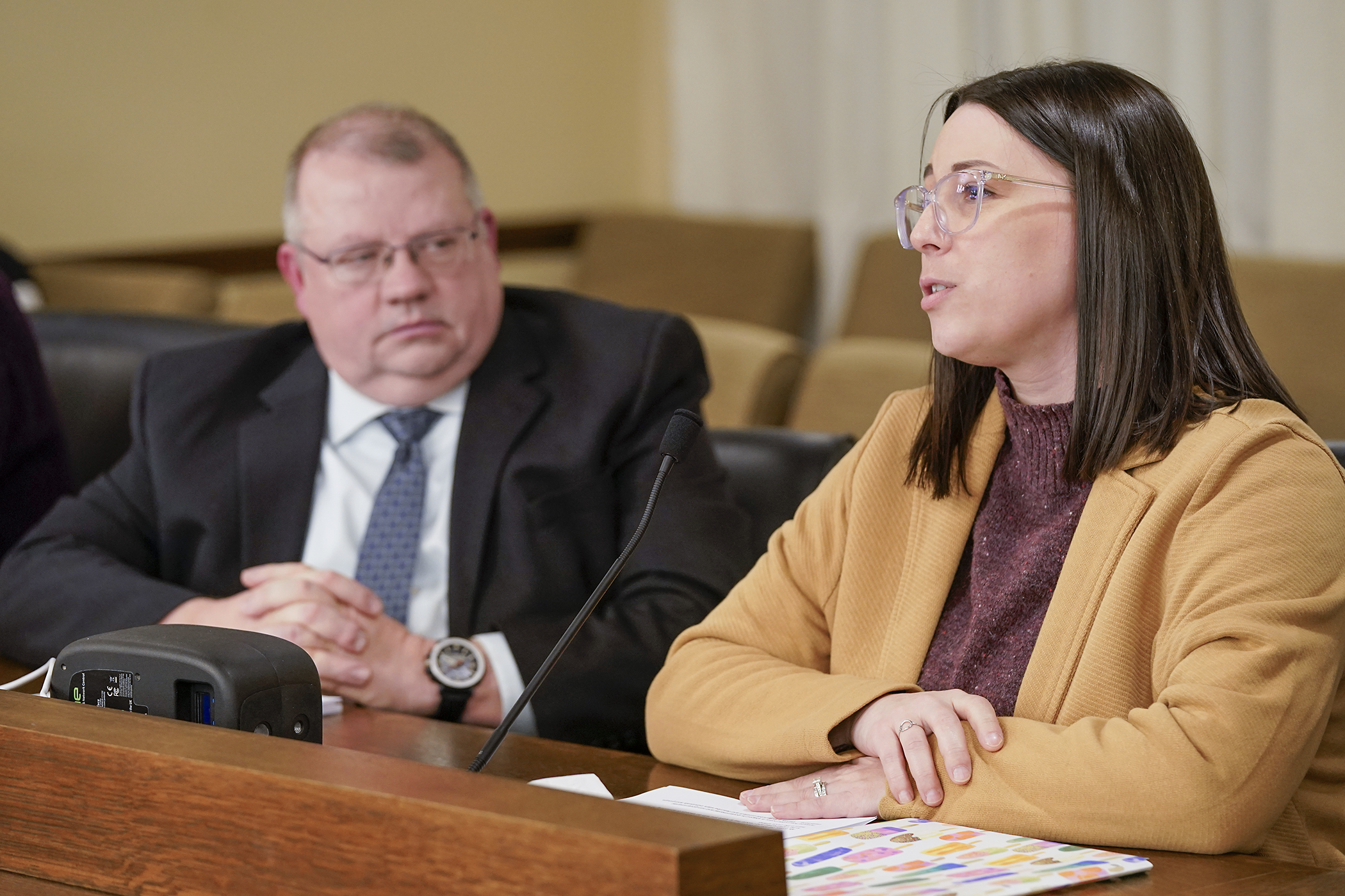House GOP seeks to roll back Minnesota's ethnic studies mandate

A set of education standards was controversial when enacted two years ago. They’re just as controversial now that their elimination is on the table.
Rep. Ron Kresha (R-Little Falls) believes mandates passed in 2023, including those related to ethnic studies, are burdening teachers and stealing time from other, more important areas of study like reading, math and science. And it’s led, he said, to an “abysmal” lack of academic achievement.
“In order to put the academic achievement problem front and center, we must remove the distractions,” he said. “We need to ensure that students can read proficiently and confidently work through math and science problems presented in everyday life.”
Kresha sponsors HF29, which would, in part, repeal ethnic studies requirements enacted in a 2023 law, suspend the implementation of revised social studies standards and no longer allow an ethnic studies class to fulfill a social studies, language arts, arts, math, elective or science credit.
The House Education Policy Committee approved the bill on a 7-6 party-line vote Tuesday and sent it to the House Education Finance Committee, which Kresha chairs.
The 2023 law requires school districts to offer an ethnic studies course in high school by the 2026-27 school year. It also requires ethnic studies to be embedded into all new revisions of academic standards.
A “disastrous mistake” is how Katherine Kersten, senior policy fellow at the Center of the American Experiment, describes current ethnic studies standards. And she questions the Department of Education’s framework for implementing ethnic studies.
“Teachers must undergo intrusive, cult-like professional development as a condition of employment,” she said. “It will profoundly damage students of all backgrounds — especially at a time when a majority can’t read or do math at grade level.”
Under the committee-approved bill, school districts would need to revert to social studies instruction aligned with the 2012 standards until the Department of Education makes scheduled revisions for the 2030-2031 school year.
Adosh Unni, director of government relations for the Department of Education, said academic standards are updated every 10 years to reflect current research and best practices, and the 2011-2012 standards are now behind the times. Additionally, he said the current standards are tailored to provide students with the education needed to be career and college ready in today’s world.
“Removing the ethnic studies strand from the current social studies standard intentionally revokes opportunities for our students to fully examine the whole truth about who we are and implies that the history of some Minnesotans is more important than others,” said Courtney Major, a U.S. history teacher at Edina High School.
Related Articles
Search Session Daily
Advanced Search OptionsPriority Dailies
Speaker Emerita Melissa Hortman, husband killed in attack
By HPIS Staff House Speaker Emerita Melissa Hortman (DFL-Brooklyn Park) and her husband, Mark, were fatally shot in their home early Saturday morning.
Gov. Tim Walz announced the news dur...
House Speaker Emerita Melissa Hortman (DFL-Brooklyn Park) and her husband, Mark, were fatally shot in their home early Saturday morning.
Gov. Tim Walz announced the news dur...
Lawmakers deliver budget bills to governor's desk in one-day special session
By Mike Cook About that talk of needing all 21 hours left in a legislative day to complete a special session?
House members were more than up to the challenge Monday. Beginning at 10 a.m...
About that talk of needing all 21 hours left in a legislative day to complete a special session?
House members were more than up to the challenge Monday. Beginning at 10 a.m...